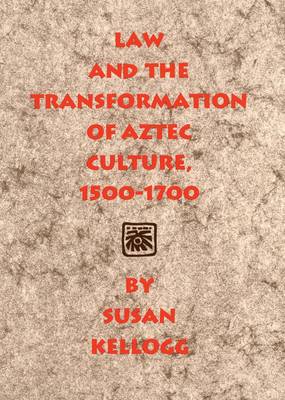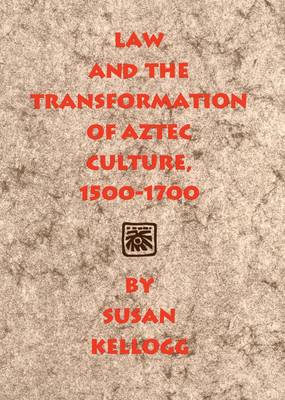
- Retrait gratuit dans votre magasin Club
- 7.000.000 titres dans notre catalogue
- Payer en toute sécurité
- Toujours un magasin près de chez vous
- Retrait gratuit dans votre magasin Club
- 7.000.0000 titres dans notre catalogue
- Payer en toute sécurité
- Toujours un magasin près de chez vous
Description
In this book, Susan Kellogg explains how Spanish law served as an instrument of cultural transformation and adaptation in the lives of Nahuatl-speaking peoples during the years 1500-1700--the first two centuries of colonial rule. She shows that law had an impact on numerous aspects of daily life, especially gender relations, patterns of property ownership and transmission, and family and kinship organization.
Based on a wide array of local-level Spanish and Nahuatl documentation and an intensive analysis of seventy-three lawsuits over property involving Indians residing in colonial Mexico City (Tenochtitlán), this work reveals how legal documentation offers important clues to attitudes and perceptions.
Spécifications
Parties prenantes
- Auteur(s) :
- Editeur:
Contenu
- Nombre de pages :
- 320
- Langue:
- Anglais
Caractéristiques
- EAN:
- 9780806136851
- Date de parution :
- 05-09-00
- Format:
- Livre broché
- Format numérique:
- Trade paperback (VS)
- Dimensions :
- 143 mm x 215 mm
- Poids :
- 462 g

Les avis
Nous publions uniquement les avis qui respectent les conditions requises. Consultez nos conditions pour les avis.






